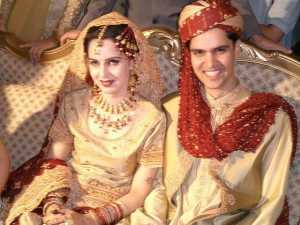
MUSLIM MARRIAGE IN CENTRAL
MUSLIM MARRIAGE IN CENTRAL (nikah) is a solemn and sacred social contract between bride and groom. This contract is a strong covenant (mithaqun Ghalithun) as expressed in Quran 4:21. The marriage contract in Islam is not a sacrament. It is revocable.
The Muslim marriage is governed not by the Indian Majority Act, 1875 but by Muslim law itself. According to Muslim Law, Marriage / ‘Nikah’ is a contract underlying a permanent relationship based on mutual consent.MUSLIM MARRIAGE IN CENTRAL
Essential Features of Muslim Nikah
 A Muslim marriage requires proposal (Ijab) from one party and acceptance (Qubul) from the other as is required for a contract.
A Muslim marriage requires proposal (Ijab) from one party and acceptance (Qubul) from the other as is required for a contract. There can be no marriage without free consent and such consent should not be obtained by means of coercion, fraud or undue influence.
There can be no marriage without free consent and such consent should not be obtained by means of coercion, fraud or undue influence. Just as in case of contract, entered by a guardian, on attaining majority, so can a marriage contract in Muslim Law, be set aside by a minor on attaining the age of puberty.
Just as in case of contract, entered by a guardian, on attaining majority, so can a marriage contract in Muslim Law, be set aside by a minor on attaining the age of puberty. The parties to a Muslim marriage may enter into any ante-nuptial or post-nuptial agreement which is enforceable by law provided it is reasonable and not opposed to the policy of Islam. Same is the case with a contract.
The parties to a Muslim marriage may enter into any ante-nuptial or post-nuptial agreement which is enforceable by law provided it is reasonable and not opposed to the policy of Islam. Same is the case with a contract. The terms of a marriage contract may also be altered within legal limits to suit individual cases. Although discouraged both by the holy Quran and Hadith, yet like any other contract, there is also provision for the breach of marriage contract.
The terms of a marriage contract may also be altered within legal limits to suit individual cases. Although discouraged both by the holy Quran and Hadith, yet like any other contract, there is also provision for the breach of marriage contract.
Requirements of Muslim Nikah
The solemnization of a Muslim marriage requires adherence to certain forms and formulas. They are called the essentials of a valid marriage. If any of these requirements is not fulfilled the marriage becomes either void or irregular, as the case may be. The essentials are as follows :
 The proposal and acceptance must both be expressed at once meeting. The acceptance must be corresponding to what is being offered. The marriage must be effectively immediate. If the Wali says “ I will marry her to you after two months”, there is no marriage.
The proposal and acceptance must both be expressed at once meeting. The acceptance must be corresponding to what is being offered. The marriage must be effectively immediate. If the Wali says “ I will marry her to you after two months”, there is no marriage. The parties must be competent.
The parties must be competent. Neither writing nor any religious ceremony is needed.
Neither writing nor any religious ceremony is needed.


Leave a Reply